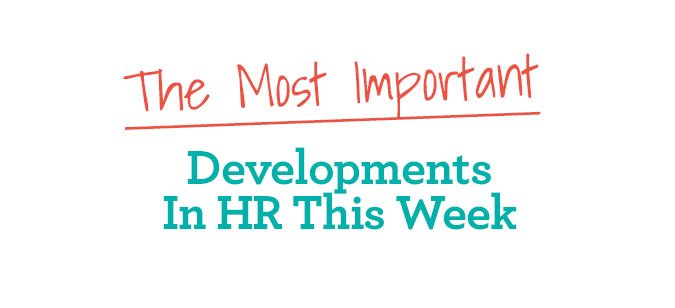
HR nationwide might want to rethink those strict non-compete clauses that are increasingly showing up in employment contracts, based on what went down in Massachusetts this week. If an employee signed a non-compete clause in the Commonwealth and then quit or got fired, the employer has to pay at least 50 percent of their salary while they sit on the sidelines during the non-compete time period. Why this radical step? Originally, non-competes were meant to prevent employees from taking your workplace secrets to competitors, or salespeople from hopping to a competitor and poaching your clients. But lately all kinds of positions require non-competes, even fast-food workers, as ridiculous as that sounds. Massachusetts didn’t much like that, hence the new law. Remember, the law regarding asking about salary history in job interviews originated there and spread across the nation. We predict this will, too. Inc


In The Economist this week, they delved into whether a four-year degree is really a necessary, wise investment for kids today. Short answer: no. They looked at the cost of degrees and the lost wages students could have been earning while they were in school. In the U.S., university students spent an average of $30,000 per year, but lost out on $60,000 in wages. (That number seems a little high, but even if it’s half that, it’s significant.) With student debt being a huge problem in this country, they concluded: Why not radically change our education model to a job training model instead? AI is poised to change the workforce, and short work-focused courses could train employees in the specifics of their jobs, setting up a model for lifelong learning as people climb the ladder. This would be white collar taking a page from blue collar’s playbook about how they train and employ workers. The Economist


HR rock star Lazlo Bock, formerly head of HR at Google where he created their legendary company culture, has been working on a shadowy new mission for the past couple of years. This week we found out what it is. His company, Humu, released its flagship product, an app that uses behavioral science and machine learning to nudge workers throughout the workday, encouraging them to change human interactions in the workplace for the better. Thanking a co-worker who did a good job, seeking out opinions from a quiet team member. It may sound warm and fuzzy but it’s aimed at the holy grail of employee engagement, an HR “dark art” that’s hard to pin down if you’re not a sorcerer like Lazlo. Other AI companies are focusing on it, too, creating the ironic scenario in which technology will encourage us to be more human at work. Quartz at Work


A former WeWork employee alleges that the start-up’s pervasive “frat-boy culture” fed a toxic environment that enabled sexual misconduct and punished employees for coming forward. Ruby Anaya filed a lawsuit against the coworking company in Manhattan Supreme Court on Thursday, outlining two incidents—incidents she contends the company ignored—in which she says male coworkers touched her inappropriately. Gothamist


The humans feed the data to AI, the data is biased, ergo … Amazon learned that this week after announcing it is back to the drawing board after discovering the AI system it spent years developing for HR is biased against women. How? Amazon fed a decade’s worth of resumes into the system with the goal of the system learning the most promising candidates. The problem was, the tech industry is notoriously male dominated, so most of the resumes were from men and the system learned to favor men over women as a result. Far be it from us to say, “Duh” (They couldn’t see that coming?) but here’s the chilling part: The developers at Amazon are some of the best in the business. The team tried to stop the system from taking the factors into account that led it to favor men over women, but the system kept finding new ways to discriminate against female candidates. Independently. There’s a sci-fi novel in there somewhere. Fortune










